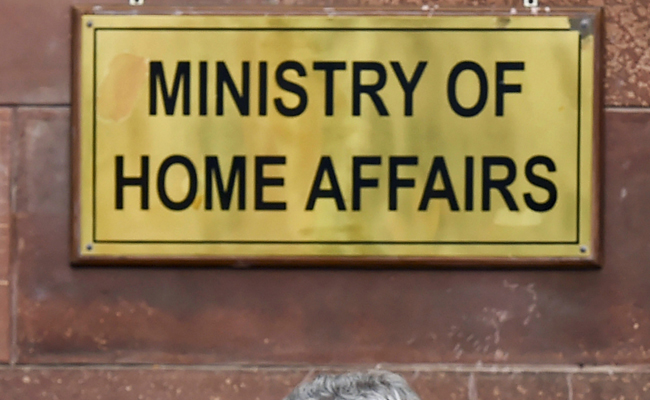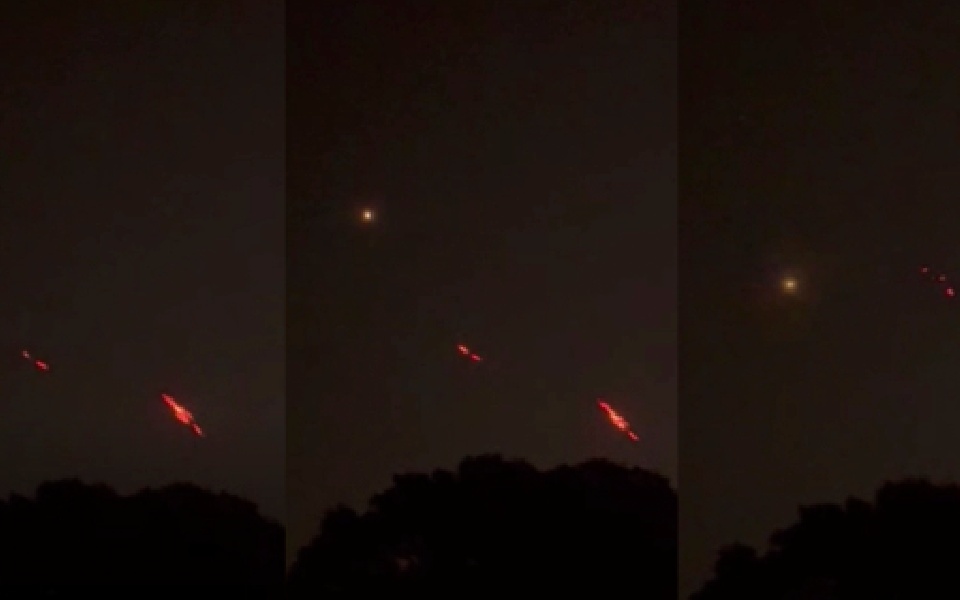New Delhi (PTI): Zero FIR, registration of police complaints online, summons through electronic modes and mandatory videography of crime scenes of all heinous crimes are the key highlights of the three new criminal laws that will come into effect from July 1.
The Bharatiya Nyaya Sanhita 2023, Bharatiya Nagarik Suraksha Sanhita 2023 and Bharatiya Sakshya Adhiniyam 2023 mark a significant step towards empowering Indian citizens and aim to create a more accessible, supportive and efficient justice system for everyone, official sources said.
The new laws, enacted late last year, are set to replace the British-era Indian Penal Code, Code of Criminal Procedure and the Indian Evidence Act respectively.
Under the new laws, a person can now report incidents by electronic communication, without the need to physically visit a police station. This allows for easier and quicker reporting, facilitating prompt action by the police, the sources said.
With the introduction of zero FIR, a person can file a First Information Report (FIR) at any police station, regardless of jurisdiction. This eliminates delays in initiating legal proceedings and ensures immediate reporting of the offence.
Under the new laws, victims will receive a free copy of the FIR, ensuring their participation in the legal process.
An interesting addition of the law is that in the event of an arrest, the individual has the right to inform a person of his choice about his or her situation. This will ensure immediate support and assistance to the arrested individual.
Besides, arrest details will now be prominently displayed within police stations and district headquarters, allowing families and friends of the arrested person easy access to important information.
To strengthen the case and investigations, it has become mandatory for forensic experts to visit crime scenes for serious offences and collect evidence. Additionally, the process of evidence collection at the crime scene will be mandatorily videographed to prevent tampering of evidence.
This dual approach significantly enhances the quality and reliability of investigations and contributes to a fair administration of justice, the sources said.
The new laws prioritised the investigations for offences against women and children, ensuring timely completion within two months of recording information. Under the new law, victims are entitled to regular updates on the progress of their case within 90 days.
This provision keeps the victims informed and involved in the legal process, enhancing transparency and trust.
The new laws guarantee free first-aid or medical treatment to victims of crimes against women and children at all hospitals. This provision ensures immediate access to essential medical care, prioritising the well-being and recovery of victims during challenging times.
Summons can now be served electronically, expediting the legal processes, reducing paperwork and ensuring efficient communication between all parties involved.
For certain offences against women, statements of the victim are to be recorded, as far as practicable, by a woman magistrate and in her absence, by a male magistrate in the presence of a woman to ensure sensitivity and fairness, creating a supportive environment for victims.
Both the accused and the victim are entitled to receive copies of the FIR, police report, chargesheet, statements, confessions and other documents within 14 days.
Courts grant a maximum of two adjournments to avoid unnecessary delays in case hearings, ensuring timely justice delivery.
The new laws mandate all state governments to implement witness protection scheme to ensure the safety and cooperation of witnesses and enhancing the credibility and effectiveness of legal proceedings.
The definition of "gender" now includes transgender individuals, promoting inclusivity and equality.
By conducting all legal proceedings electronically, the new laws offer convenience to victims, witnesses and accused, thereby streamlining and expediting the entire legal process.
In order to provide more protection to the victim and enforce transparency in investigation related to an offence of rape, the statement of the victim shall be recorded through audio video means by the police.
Women, persons below 15 years, persons above 60 years and those with disabilities or acute illness are exempt from attending police stations and can receive police assistance at their place of residence.
A new chapter has been added in BNS specifically to address offences against women and children, ensuring focused protection and justice.
Various offences against women and children have been made gender-neutral in BNS, covering all victims and perpetrators regardless of gender.
The new laws introduce community service for minor offences in order to promote personal growth and social responsibility of an individual. Under community service, the offenders get the chance to positively contribute to society, learn from their mistakes and build stronger community bonds.
Under the new laws, the fines imposed for certain crimes have been aligned with the severity of the offences, ensuring fair and proportional punishment, deterring future offences and maintaining public trust in the legal system.
The legal processes have been simplified to make them easier to understand and follow, ensuring fair and accessible justice.
The new laws promise a faster and fair resolution of cases, instilling confidence in the legal system.
The legislations were considered and passed by Parliament in its winter session in 2023. Total 37 members of Parliament from Lok Sabha and 40 from Rajya Sabha participated in the debate.
Let the Truth be known. If you read VB and like VB, please be a VB Supporter and Help us deliver the Truth to one and all.
Jammu, May 12 (PTI): Security forces are engaging suspected drones observed along the International Border in Samba district of Jammu region on Monday, an Army said.
This fresh incident of drone activity along the borderline comes barely hours after Prime Minister Narendra Modi’s first address to the nation following Operation Sindoor and the meeting of the DGMOs of India and Pakistan.
The Army, however, said there is no need to be alarmed.
“A small number of suspected drones have been observed near Samba in J&K. They are being engaged,” it said.
In the backdrop of the situation, several areas witnessed blackouts in Samba, Kathua, Rajouri, and Jammu.
Lights were switched off at the cave shrine of Mata Vaishno Devi and along its track as a precautionary measure, sources said.
On Monday, talks between the DGMOs were held during which issues related to the continuing commitment that both sides must not fire a single shot or initiate any aggressive or inimical action against each other were discussed, the Indian Army said.
It was also agreed that both sides would consider immediate measures to ensure troop reduction along the borders and in forward areas, it added.
The situation remained largely peaceful across Jammu and Kashmir, with no incidents of ceasefire violation reported along the Indo-Pak border Sunday overnight — marking the first calm night after 18 days of hostilities following the Pahalgam terror attack that left 26 people — mostly tourists — dead.
India and Pakistan on Saturday reached an understanding to cease all firing and military actions on land, air, and sea with immediate effect, following four days of intense cross-border drone and missile strikes that brought the two countries to the brink of full-scale war.
Eighteen days of intense hostilities following the Pahalgam terror attack and Operation Sindoor, which brought India and Pakistan to the brink of war, ended with a ceasefire that restored calm along the Line of Control, the International Border, and the hinterland in Jammu and Kashmir. The Army thwarted Pakistan’s Hamas-style kamikaze drone attacks during the escalation.
Since the night of April 24, hours after India suspended the Indus Waters Treaty in response to the Pahalgam terror attack, Pakistani troops repeatedly targeted Indian positions along the LoC — beginning in the Kashmir Valley and quickly expanding to the Jammu region.
The latest hostilities began in the northern districts of Kupwara and Baramulla in the Kashmir Valley, before spreading southwards to Rajouri, Poonch, Akhnoor, and the Pargwal sector along the International Border in Jammu district. The firing affected five border districts — Baramulla, Kupwara, Poonch, Rajouri, and Jammu.
The recent round of cross-border firing further undermined the ceasefire agreement reached in February 2021, which has largely been seen as ineffective due to Pakistan’s frequent violations along the 740-km-long LoC.
The April 22 terror attack, which claimed the lives of 26 people — mostly tourists — in Pahalgam’s Baisaran valley, triggered a strong response from the central government.
The India-Pakistan border stretches over 3,300 kilometers, divided into three segments: the International Border (IB), spanning about 2,400 km from Gujarat to Akhnoor in Jammu; the 740-km-long Line of Control (LoC) that divides Jammu and Kashmir; and the 110-km-long Actual Ground Position Line (AGPL), which separates the Siachen Glacier region.
WATCH: OP Sindoor continues. Minutes after PM Speech.
— Rahul Shivshankar (@RShivshankar) May 12, 2025
A small numbers of suspected drones being observed near Samba in J&K. Being engaged . pic.twitter.com/jmGmRkmQ26





